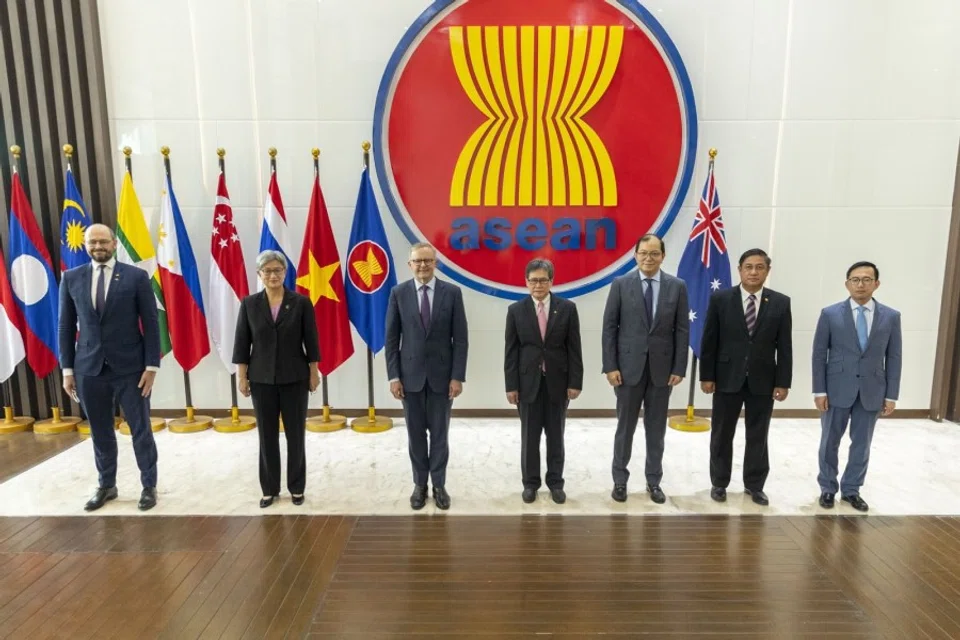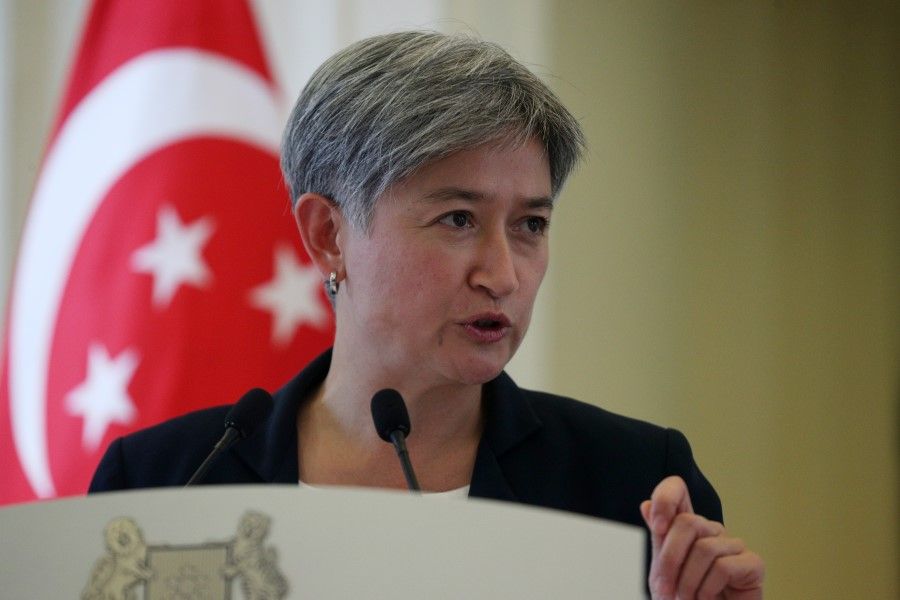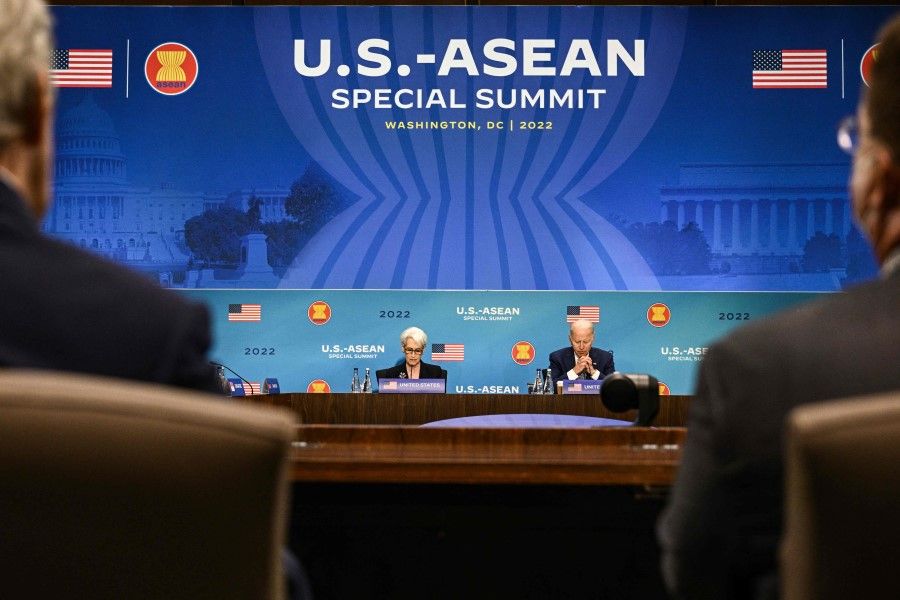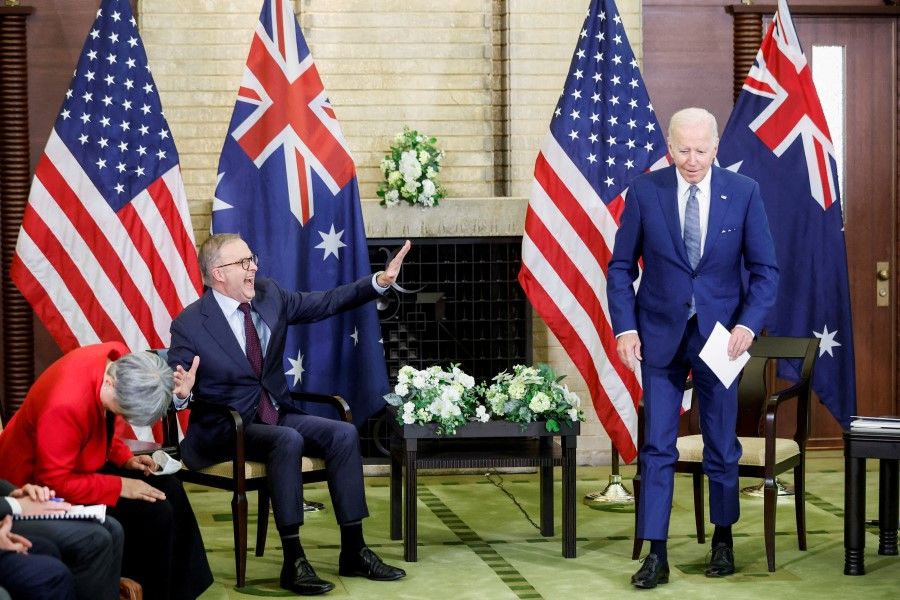'Hard yakka' ahead for Australia and ASEAN relations

For decades, Australia was seen as an Anglo-Saxon outpost and even America's "deputy sheriff", a country set apart from Southeast Asia and the wider region. With its growing engagement with Southeast Asia, however, Australia is slowly stepping out to embrace its connections to Asia.
Australia a consistent friend of ASEAN
Speaking at a special lecture on Australia-ASEAN relations organised by the International Institute for Strategic Studies (IISS) on 6 July 2022, Foreign Minister Penny Wong spoke eloquently about Australia's longstanding connections with Southeast Asia. Beginning in the 1700s (well before European settlement in Australia), traders from Makassar had apparently sought sea cucumber from the native peoples in Arnhem Land in Australia.
"I am not the first foreign minister in Australia's history to recognise the importance of our relationships with Southeast Asia. But I am the first to make these statements as an Australian foreign minister who is from Southeast Asia," said the minister, who is of Malaysian origin.
More importantly, the senator said that Australia puts great import on the centrality of ASEAN. Canberra, she added, should find its security in Asia (in particular Southeast Asia), not from Asia.

Modern Australia has been a consistent friend of ASEAN, becoming the grouping's first dialogue partner in 1974. Australia's relationship with ASEAN was upgraded to a Comprehensive Strategic Partnership last year. Its two-way trade with ASEAN amounts to more than A$100 billion - more than Canberra's trade with Japan or the US.
Canberra, however, will find it "hard yakka", as the Australians say, or a hard slog to engage ASEAN at a time when Chinese power is on the rise and there is growing geopolitical rivalry between Beijing and Washington.
But Australia's efforts to engage Southeast Asia can be dwarfed by those of the bigger powers.
Supporting ASEAN centrality
To begin with, geopolitical weight matters. As Euan Graham, an IISS senior fellow, put to Senator Wong: ASEAN matters to Australia, but the key question is whether Australia matters to ASEAN. A short answer is that it does, as the grouping has expressed its appreciation for Canberra's Covid-19 assistance and support for ASEAN community-building efforts. Australia is seen as a preferred tourist and educational destination for many Southeast Asians (albeit not ranking as highly as countries such as the US, the UK and Japan.)
But Australia's efforts to engage Southeast Asia can be dwarfed by those of the bigger powers. In the 2022 State of Southeast Asia Survey, respondents were asked which third parties they would choose as a "preferred and trusted" strategic partner given the vicissitudes of China-US rivalry. Japan and the EU placed first and second, with Australia coming in a distant third. In the Lowy Institute's Asia Power Index, Australia is ranked seventh in diplomatic influence, behind the US, China, Japan and Russia. Second, it is clear that there is diplomatic double-talk in Australia's oft-repeated declarations of support for ASEAN centrality. As retired Singapore diplomat Bilahari Kausikan has argued, great powers will voice their support for ASEAN centrality so long as it serves their interests.
Quad and AUKUS members have all mouthed the shibboleth of supporting ASEAN centrality, but their establishment of these entities indicates otherwise.
Australia is part of two extra-ASEAN entities: the Quadrilateral Security Grouping (Quad, with Japan, India and the US) and AUKUS (with the UK and the US) agreement for the development of nuclear power for Australian submarines.

Quad and AUKUS members have all mouthed the shibboleth of supporting ASEAN centrality, but their establishment of these entities indicates otherwise. A retired Thai diplomat noted US President Joe Biden's repeated attempts to underscore US support for ASEAN centrality at the US-ASEAN special summit in May. "The reality is that it is quite the opposite," he said.
As former Indonesia foreign minister Marty Natalegawa has argued, AUKUS is a reminder to ASEAN of the cost of "dithering and indecision" in a fluid strategic environment. Put differently, Australia's involvement in Quad and AUKUS means that it is not only seeking security in Southeast Asia, as Senator Wong argued, but apart from Southeast Asia.
Last, it should be said that Australia and the Quad's views about the rise of China have shades of difference compared with ASEAN's. For the former, China is seen as a country needing a mix of confrontation, competition and engagement.
Diplomatic language and 'code'
The Quad has been using diplomatic language about upholding the rules-based order and freedom of navigation. It talks a good talk about providing public goods to the region, such as Covid-19 vaccines, climate change and emerging technology.

But the Quad has become more direct in using "code" directed at China. At the May 2022 Quad summit in Tokyo, the grouping discussed the settlement of disputes without using the threat of force, warning against "unilateral attempt(s) to change the status quo". The truth is that the Quad comprises four democracies with formidable militaries in a region where China seeks to hold sway. It is an open secret that the Quad as it stands is a check on China.
Despite Australia's rhetoric about listening to and working with ASEAN, the challenge is whether perceptible differences - say, on the Quad and AUKUS - can be discussed with Southeast Asians to both sides' satisfaction.
ASEAN uses some of the same "code", as seen in its expressed support for a rules-based order, respect for sovereignty and adherence to international law. Compared with the Quad, ASEAN is seen as more accommodating and inclusive, and less confrontational towards China. The grouping seeks to provide multilateral platforms to manage the challenge posed by China.
That said, differences in approach towards China do not preclude Australia and ASEAN from working together. As Senator Wong argued, Australia and ASEAN should not navigate their relationship through the "prism of China". Notwithstanding their geographical, economic and historical differences, Southeast Asian countries and Australia want a "stable and prosperous" region where "international behaviour and international differences are not resolved by power and size only, but by reference to international norms and international law".
Australia's differences with Southeast Asian countries can be talked through, at times collectively with ASEAN, she added. As Australian Prime Minister Anthony Albanese has stated, Canberra stands ready to listen and learn through "quiet exchanges" how Southeast Asian countries, in particular Singapore, deal with Chinese bullying.
In sum, there has been much progress in Australia's relationship with ASEAN, but there are inherent challenges. Despite Australia's rhetoric about listening to and working with ASEAN, the challenge is whether perceptible differences - say, on the Quad and AUKUS - can be discussed with Southeast Asians to both sides' satisfaction.
This article was first published by ISEAS - Yusof Ishak Institute as a Fulcrum commentary.
Related: China-Australia relations: Downward spiral as Australia plays 'deputy sheriff' to the US? | Australia's turn towards the US: ASEAN centrality at risk | Australia boosting security relations with Southeast Asia and the US in the face of heightened threats | Tacking towards Australia: Japan's move to diversify its security and defence cooperation in the Indo-Pacific | ASEAN's deft diplomacy with its dialogue partners | With AUKUS in place, now what for key players in the Indo-Pacific? | AUKUS: A reflection of ASEAN's inability to cope with China's rising assertiveness?
